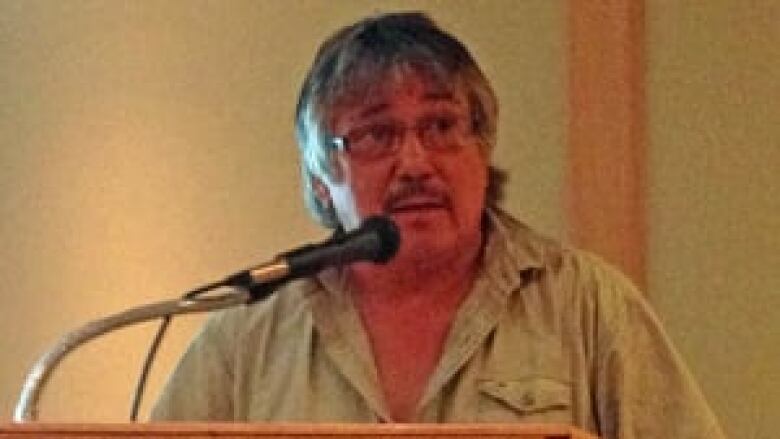Treaty Three Police won't close up shop — yet
First Nations police service board aims to address issue of chronic government underfunding
First Nations in northwestern Ontario and eastern Manitoba may not lose their Aboriginal police force after all.
The Treaty Three Police Service sent out layoff notices earlier this month and threatened to shut down the force entirely, but that all changed after some critical meetings in Kenora yesterday.
The police service had told employees that government underfunding meant it couldn't honour the most recent collective agreement, but after yesterday's annual general meeting in Kenora, the force will stay in service for another year.

'Setting it up to fail'
Constable Leilani Redsky said the election of a new board makes a difference.
"These new members coming in, I think they're willing to work with us and that's all we asked for," she said.
Redsky said she believes her layoff notice will soon be cancelled and the police force serving more than two dozen First Nations will survive.
But first the new board has to deal with a problem facing Aboriginal police forces across the country: government funding.

The acting chief of the Nishnawbe-Aski Police Service, the largest First Nations police force in Canada, said his officers are paid $7,000 less than their Treaty Three counterparts.
"At the end of the day, if you're not going to fund it properly, you're setting it up to fail," Bob Herman said.
"The government has to come to the table and say, 'If this is how we want First Nations communities to be policed in this country, then we'd better fund it appropriately."
The Nishnawbe-Aski Police board is asking the government for a $1.1 million increase to its budget. Herman said Aboriginal police services everywhere are struggling financially and Treaty Three constable Mike Bennett said he knows first-hand how that affects policing.
"You're stuck with shortages of ... police presence … shortages of equipment [and] enormous amounts of overtime," he said.
Herman said Canada's First Nations policing program hasn't had a significant funding increase for five years.

The new Treaty Three police services board chair Eli Mandamin said his priority is bringing the management and officers together.
"Once we do the orientation and the transition that has to happen, then we're open to start making some time for the union, the police officers, the police chief and whomever else we have to sit with," said the chief of Shoal Lake 39 First Nation.
Mandamin said the new board will begin work on Thursday.